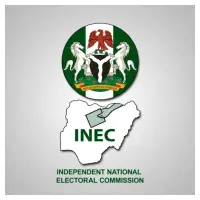The Director General of the Energy Commission, Mustapha Abdullahi, has revealed that President Bola Ahmed Tinubu's administration has successfully added an extra 2000 megawatts to Nigeria's available electricity supply within just two years in office.
Speaking during an interview with Channels Television on Friday, Abdullahi highlighted the significant progress made in the power sector under the current administration.
"The first generation of electricity in Nigeria started in 1896 or thereabouts. If for 127 years we have been able to generate only 4000 megawatts. Then, the president came to power and gave us an extra 2000 megawatts to the 4000 MW. That is to say, he may double it before the end of his tenure and may triple it if given another term," he stated.
Nigeria's Electricity Needs
The Energy Commission DG emphasized that for every Nigerian household to have affordable access to electricity, the country must significantly scale up its generation capacity.
"For every household to have affordable access to electricity, Nigeria must generate 40,000 MW," Abdullahi explained, highlighting the substantial gap that still exists despite recent improvements.
According to data on national grid performance and electricity generation as of April 25, 2025, Nigeria's power generation stood at 5148.34MW, confirming the upward trajectory in the country's electricity supply.
The increase in electricity generation capacity represents a significant milestone for the Tinubu administration, which has identified power sector reform as a critical component of its economic transformation agenda.
Industry experts note that reliable electricity supply remains crucial for Nigeria's industrial growth, job creation, and overall economic development. The administration's achievement in adding 2000MW within two years provides a foundation for further expansion of the country's power infrastructure.
However, with the target of 40,000MW still distant, stakeholders continue to advocate for accelerated investments in generation, transmission, and distribution infrastructure to meet the nation's growing energy demands.
Follow BenriNews on social media:











